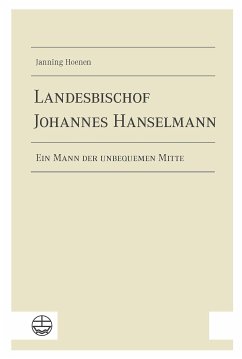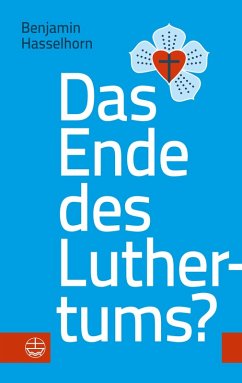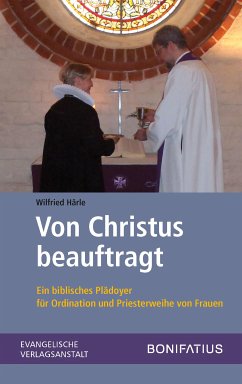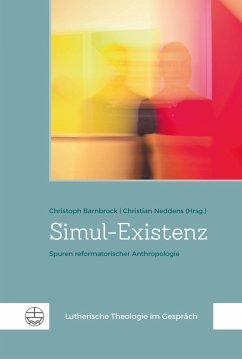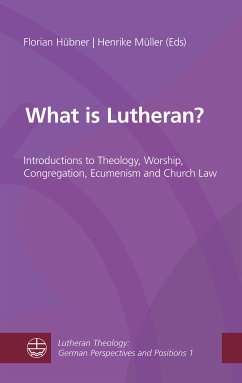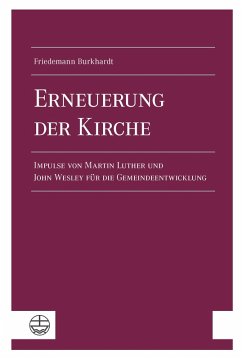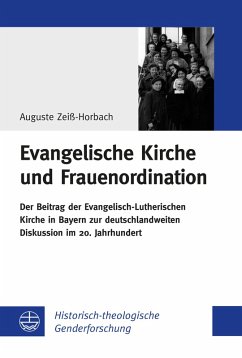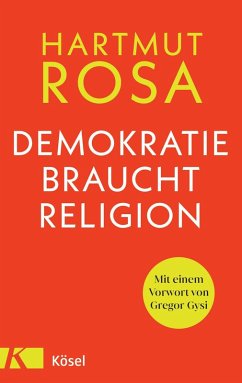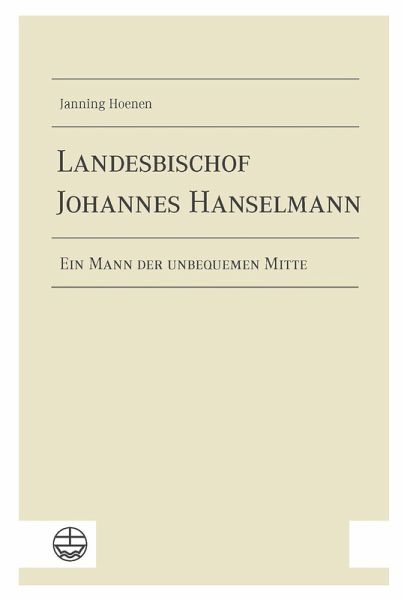
Landesbischof Johannes Hanselmann (eBook, ePUB)
Ein Mann der unbequemen Mitte
Versandkostenfrei!
Sofort per Download lieferbar
Statt: 25,00 €**
19,99 €
inkl. MwSt. und vom Verlag festgesetzt.
**Preis der gedruckten Ausgabe (Broschiertes Buch)
Alle Infos zum eBook verschenkenWeitere Ausgaben:

PAYBACK Punkte
0 °P sammeln!
Johannes Hanselmann, der dritte Landesbischof der Evangelisch-Lutherischen Kirche in Bayern (1975-1994), bezeichnete sich selbst als "Mann der Mitte". Als solcher hat er die Modernisierungsprozesse in der evangelischen Kirche begleitet und gefördert. Während der Höhepunkte der Studentenproteste war er Leiter des "Hauses der Kirche" in West-Berlin. In den Jahren seines Bischofsamtes wurden in Bayern u. a. die Frauenordination eingeführt, der Nürnberger Kirchentag abgehalten und kirchliche Positionen zu Schwangerschaftsabbruch und der nuklearen Wiederaufarbeitungsanlage in Wackersdorf disku...
Johannes Hanselmann, der dritte Landesbischof der Evangelisch-Lutherischen Kirche in Bayern (1975-1994), bezeichnete sich selbst als "Mann der Mitte". Als solcher hat er die Modernisierungsprozesse in der evangelischen Kirche begleitet und gefördert. Während der Höhepunkte der Studentenproteste war er Leiter des "Hauses der Kirche" in West-Berlin. In den Jahren seines Bischofsamtes wurden in Bayern u. a. die Frauenordination eingeführt, der Nürnberger Kirchentag abgehalten und kirchliche Positionen zu Schwangerschaftsabbruch und der nuklearen Wiederaufarbeitungsanlage in Wackersdorf diskutiert. Als Präsident des LWB vermittelte er zwischen den Kirchen des Nordens und des Südens. Über seine Amtszeit hinaus engagierte er sich für die "Gemeinsame Erklärung zur Rechtfertigungslehre". In dieser Arbeit wird der Lebensweg Hanselmanns erstmals biographisch erschlossen und in die Entwicklung des Protestantismus in Deutschland eingezeichnet. [Bishop Johannes Hanselmann. A Man of the Uncomfortable Middle] Johannes Hanselmann, the third bishop of the Evangelical-Lutheran Church in Bavaria (1975-1994), called himself a "Man of the Middle". In this role he moderated and supported the processes of modernization in the Protestant Church. During the time of the student movement he was head of the "House of the Church" in West Berlin. While bishop, the ordination of women was introduced in Bavaria, the Kirchentag in Nuremberg was held, and the church's positions concerning abortion and the erection of a nuclear reprocessing plant were discussed. As president of the LWF he mediated between the churches of the North and the South. Well into his retirement, he was an active proponent for the Joint Declaration on the Doctrine of Justification. In this study Hanselmann's life story is told in correlation with the development of German Protestantism as a whole.
Dieser Download kann aus rechtlichen Gründen nur mit Rechnungsadresse in A, B, BG, CY, CZ, D, DK, EW, E, FIN, F, GR, H, IRL, I, LT, L, LR, M, NL, PL, P, R, S, SLO, SK ausgeliefert werden.




